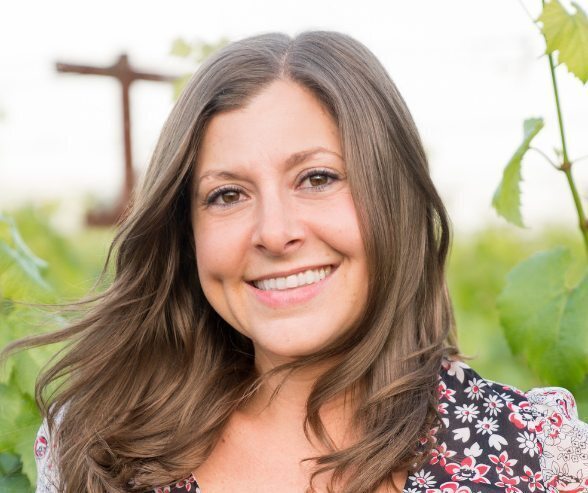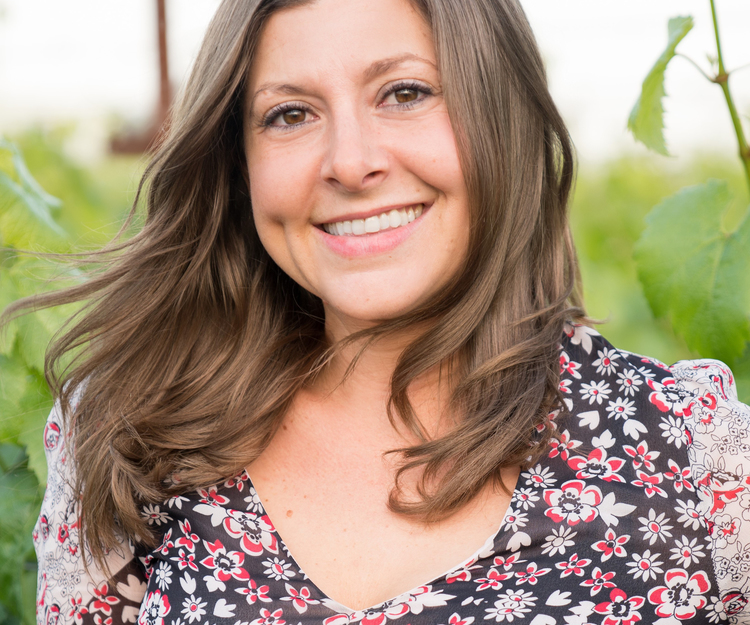From Grapevines to Skylines: My Journey from the Wine World to Wanderlust
I started my career in the wine industry at the age of 21 in 2001 in Sonoma County. I spent many years working at wineries before moving into different areas of the industry. My identity has been inextricably linked with wine since that time. I lived and breathed wine for almost 15 years, and now on the digital strategy side of things I still participate in a lot of educational tastings as well as research and write about wine for a variety of publications.
I always wanted to travel, but as a young adult in the U.S. (before Facebook, way before the travel blogger craze, the digital nomad era, etc.) didn’t have many opportunities as I had little to no vacation in my 20s (working full time and going to community college on my only days off) and never had much extra money. I didn’t see others doing what I wanted to do, so I didn’t really know it was possible for people like me.
My first serious travel experience occurred when I did a study abroad program in Italy at the age of 24 (I left my fledgling career in the wine industry and took out student loans to fund the year–as I knew I’d never have the opportunity again). When I got back from that year, all I knew was that I wanted to figure out a way to do more travel to other countries, explore other cultures, etc.
I didn’t know how I’d do it, with the career that I had but the drive to make it happen was there, living in the back of my head for years. It wasn’t until my mid-30s though, that I finally took a huge leap and my life savings and went to spend another year in Europe, this time with the intent of building up a skillset that would allow me to work at least semi-remotely, while spending time in places I’d always wanted to explore but never had the vacation time to travel to. I figured that worst case scenario, even if I failed to find a way to make a living that would also allow me to travel, I’d at least do more travel in that one year than I’d have been able to do in 20 years while working a 9-5 full-time job at home with only 2 weeks of vacation per year.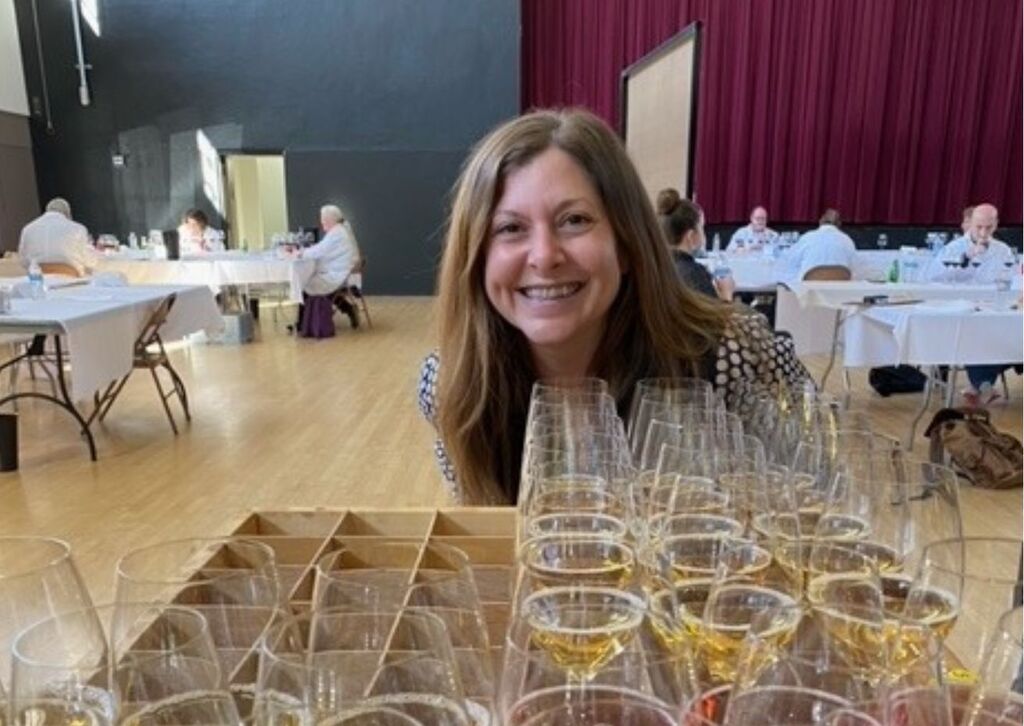
Professional Wine Tasting
I wish I could say I cracked the code and found a way to make a great living that also allowed me to travel as much as I wanted. But eight years later, I’m still working on figuring out how to both make a good living and travel for longer periods of time. That said, I’ve traveled more than I ever dreamed possible when I was in my 20s and have accomplished so many goals that I dreamed of accomplishing but never thought would become reality.
These include learning other languages (I speak a conversational level of Italian and an advanced level of Spanish), spending full months at a time in regions and countries I’d always dreamed of living or spending time (London, Piedmont, Provence, Andalucia, Galicia, Barcelona, Prague. Chile, Washington wine country, Oregon wine country, etc.…).
None of my travel has been paid for by an employer or planned/sponsored by anyone (with the exception of one week in Spain last year). I’ve pieced these trips together myself using savvy research and budgeting skills and sacrificing creature comforts and security that others might not be willing to sacrifice. But no matter where I travel, I find a way to turn into more than just a trip–whether that means pitching and writing articles that are later published in magazines, websites, or newspapers, participating in language immersion courses, or networking in wine regions to make connections that may be valuable to me in my business.
Choosing Wineries: Finding Your Perfect Pour and Place
When it comes to choosing the ‘right wineries’ there’s no set list of ‘best’ wineries for any one person, couple, or group of friends. The most important thing is to first consider what types of experiences you tend to like the best. Are you the kind of person who likes big, fancy wineries that are famous, have tons of Instagram-able spots, and that all of your friends are sure to have heard of? Or, do you like seeking out hidden gems, small family-owned places, etc.?
For the big, fancy, well-known wineries, it is easy to find hundreds of articles online that share lists of places you can/should visit. Read up on some of these wineries, take a look at the kinds of wines they make and whether they are the kinds of wine you think you’d like, and look at the tasting/tour experiences they offer, cost, etc. to figure out which places you’d most like to visit.
For recommendations of small, hidden-gem wineries, or family-owned wineries with amazing quality wine (i.e., the places sommeliers and wine pros with picky palates think are great), I’d recommend both doing more specific online searches plus getting recommendations from friends plus doing some crowdsourcing. I.e., Google small, family-owned wineries in the XYZ region and ask wine-savvy friends for their favorite spots (the ones that really know their stuff, not the ones that just go to places for Instagram shots).
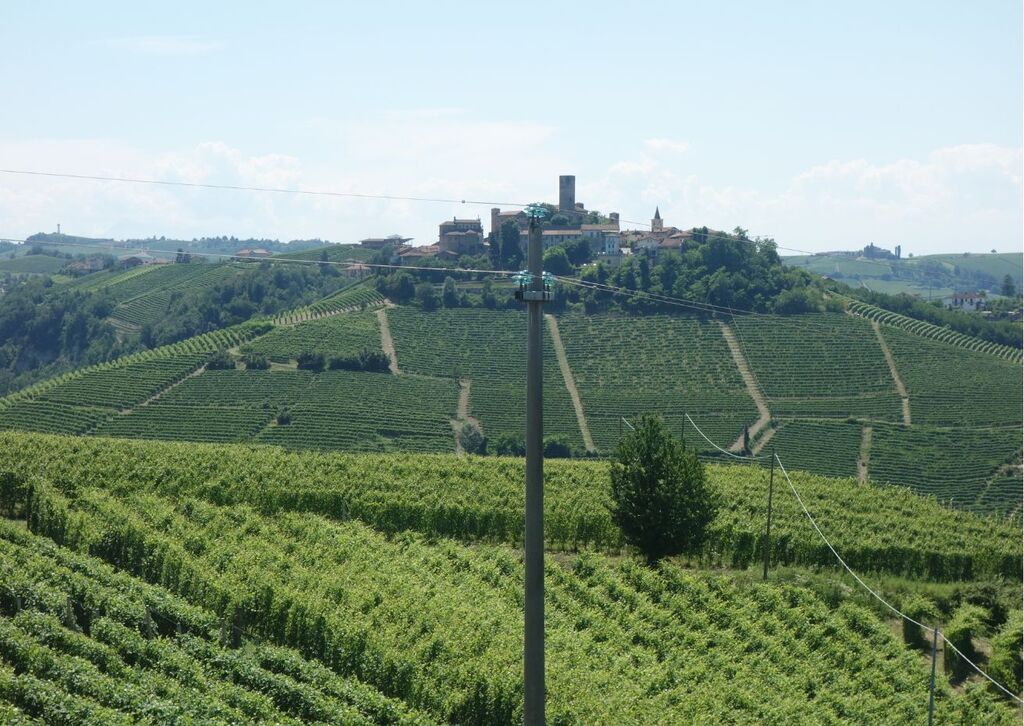
Vineyards in the Langhe Region of Piedmont Italy
Make sure to let these friends know a little bit about the types of wines you like best (i.e., you only drink white wine, you LOVE sparkling wine, you dig geeky weird esoteric unoaked reds, etc.). If it’s a major wine region, you should also check out the local tourism board’s website and other websites maintained by the wine-growing areas in that region.
Also, you can get a lot of great recommendations in Facebook groups from wine lovers around the world. A couple of these groups are @winelovers and @winetravelers
If you go to Sonoma County, please feel free to reach out to me, and I’ll happily send you links to blog posts and articles I’ve written for local tourism organizations, newspapers, and travel/wine sites. Or you can Google my name + Sonoma County, and you’ll probably find some stuff.
Places I Have Visited Just To Visit Wineries
I have visited wine regions all over California, Washington, and Oregon, as well as Spain, France, Italy, Bulgaria, Australia, Croatia, and Chile.
I don’t think about the number of countries when I travel or visit wine regions, as that isn’t the point. It’s about visiting regions you’re interested in and going back again and again (if possible) to keep exploring and seeing how things change and progress.
No one can ‘know’ a country, city, region, or culture after just a short trip. I revel in digging deeper, connecting, and really getting to understand a place or culture.
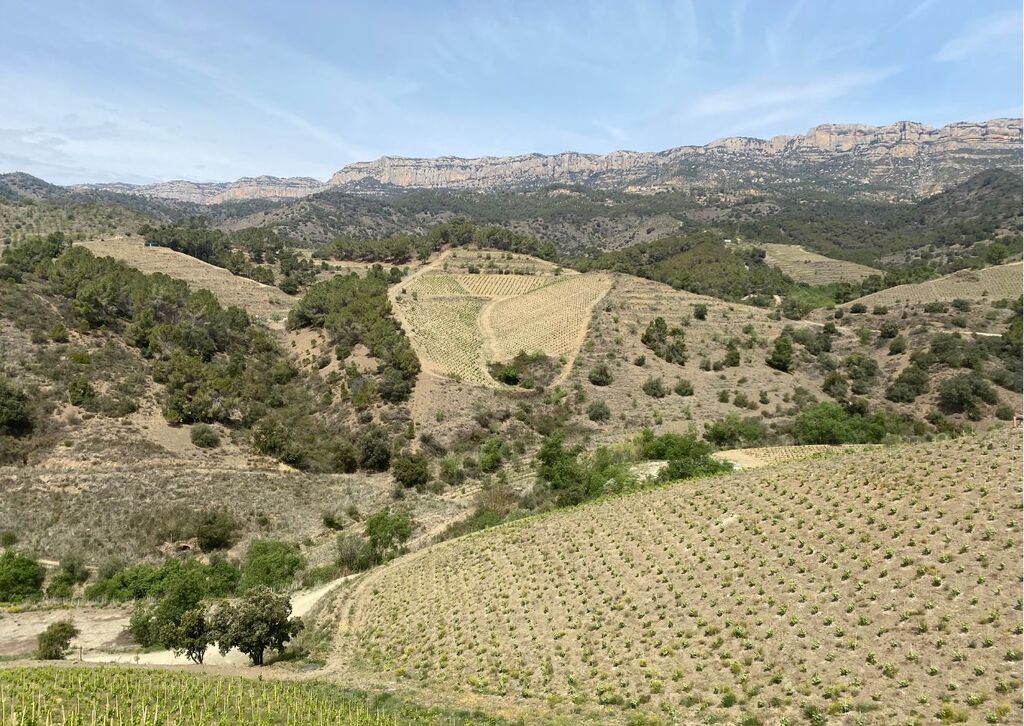
Mas Doix Vineyards Priorat Spain
Best Time To Visit Wineries
Due to spending so many years living and working in a wine region that attracted a lot of tourism, I prefer to visit wine regions off-season so that I’m likely to encounter less traffic, no crowds, and get more time to connect with the people at the winery, the winemaker, etc. For me, this means weekdays in the winter and Spring.
Granted, I am not your average consumer. However, even when I travel to wine regions or wineries with friends, I really prefer to travel during off-peak months and on weekdays as much as possible. I simply don’t like crowds, and it’s a more relaxing experience that normally leads to richer conversations and connections. Oh yeah, and did I mention I hate hot weather? So summer isn’t my favorite time of year anywhere where the temperatures rise above 80, ha!
However, most wine lovers and travelers are probably going to enjoy Fall and Summer the most in wine regions if they enjoy visiting a region where tons of events are happening (live music, concerts, movies in the vineyard, winemaker dinners and luncheons, etc.) and they like to be out in warm weather.
Also, Fall is harvest season (these days harvest season is really early September into maybe early October in the Western hemisphere due to warming temperatures) so this is the time of year when you’ll smell fermenting grapes in the air, and there’s a ton of activity going on at vineyards as well as fun events like grape stomps, harvest luncheons in the vineyard, etc.
My Favorite Wineries
There are dozens and dozens of fantastic wine regions just within the U.S. and hundreds in Europe, as it’s an entire continent and there are many, many countries that have significant wine regions. So instead, I’ll share a few of my personal favorites.
I have not visited every wine region in Europe or even the United States. However, based on my own personal preferences and my travel experiences, here are some of the best places I’ve visited and would recommend to true wine lovers.
Sonoma County, California
Piedmont, Italy
Provence, France (within Provence you have Gigondas, Vacqueyras, Chateauneuf-du-Pape, and more.)
Loire, France
Rias Baixas, Spain
Walla Walla, Washington
Willamette Valley, Oregon
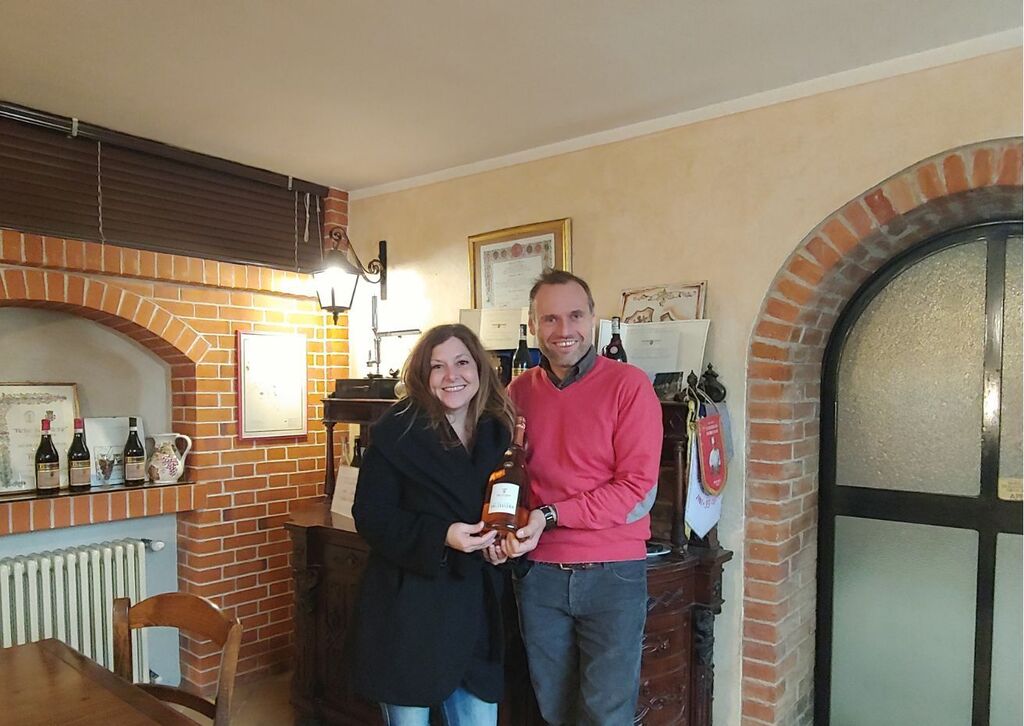
With The Owner Of Francone Winery Piemonte
Tasting Room Tactics: Know Before You Go
It depends on what country/region you are in. There’s no hard-and-fast rule for all countries or regions. In a lot of places, you should definitely make a reservation in advance. This is especially true in Italy, Spain, France, etc. where the ‘tasting room’ concept is not as prevalent as it is in the U.S. Canada, etc.
However, there are still plenty of places in the U.S. (depending on which region you are in) where you can stop in at any time during their open hours and they can serve you, as long as they have the bandwidth.
A Pause for the Senses: Wine, Music, and Mindful Moments
I’ve had so many amazing experiences over the past 20 years.
Most recently (as in, within the past few months), the most unique wine tasting experience I had was at a small winery in the Priorat region of Spain (a couple of hours’ drive from Barcelona), Mas Doix. What was so unique and amazing about the experience (other than the wines, which were fantastic) was that the owner paired the wine tasting experience with special music to set the tone, and gave us the opportunity to simply sit, sip, and experience while letting the music wash over us–without talking to us about the wines. It’s amazing how long five minutes feels, when we are all so used to doing so many things at once. The sensory experience allowed us to shift into a different mental space and, honestly, really refreshed us. We opted to put our phones away for a few hours after that, in order to really experience our day in the region.
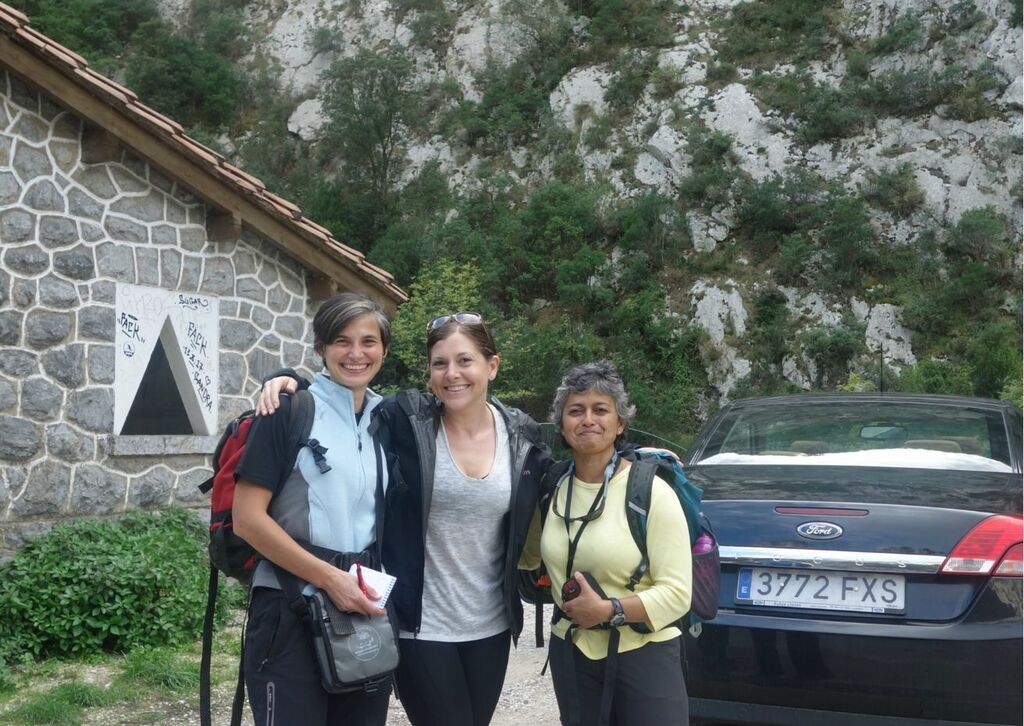
Hiking in The Picosde Europaw Peak Me Languages School
Etiquette Tips To Know Before The Visit
Pace yourself. Don’t try to cram too many wineries into a single day. Drink water, make sure to consume carbohydrates, and eat regular meals. It’s far more enjoyable to visit two wineries where you spend plenty of time touring the vineyard, tasting and learning about the wines, etc., and then have time for a long lunch at a nice, local restaurant than to overdo it and then have to cancel dinner plans because you are so buzzed or exhausted.
My Inspiration For Starting The Blog
I started my blog, A Different Kind Of Travel, in 2016 as a way to teach myself about CMS systems (WordPress) and SEO as well as to provide myself with a place to practice travel writing. My blog isn’t a business (i.e., I don’t make a profit), and I don’t spend much time on it these days, but it offered me a great platform on which to test out different apps and tools and become an expert in content management, content strategy, and SEO.Travel blogs are the toughest kinds of blogs to make an impact (or any kind of profit), as the niche is so competitive. If I had to do it over again, I would have started a wine travel-specific site and then a couple of other really niche sites related to other passions of mine.
That said, even doing that would be really difficult if you are starting now (today) due to the sheer volume of blogs that exist, the increasing barriers to success as far as monetizing traffic (Google is working hard to keep all traffic on Google rather than sending anyone to independent websites), and now... AI.
A Journey of Months: From Normandy to the World
In late 2015, I spent a month in the Normandy region of France.
This was right before I decided to take my life savings and spend a year in Europe on a ‘career break’ (i.e., living on an incredibly tight budget and updating my skill set and experience so that I could make a career shift), which changed my life completely.
The trip was amazing for so many reasons. First, there is so much to see in Normandy and nearby Brittany-from Monet’s Gardens at Giverny, the cliffs of Etretat, and the floating island of Mont St. Michel to Rouen, which is famous both for being where Joan of Arc was put to death as well as the city that inspired Monet’s Cathedral series. I opted to spend a month there taking French classes at a local school because they helped students secure affordable studio apartments in Rouen that cost a lot less than an Airbnb or hotel. So for the same cost as an Airbnb, I got both a studio apartment (super small and basic, but with everything I needed) and a month of French classes (25 hours/week), including cultural excursions with the school during the week.
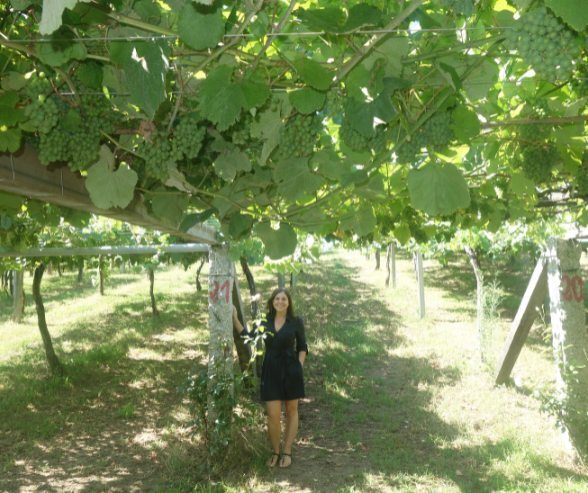
Under the Albarino Vines in Rias Baixas, Galicia (Spain)
I also ended up meeting someone on my way to France by way of London who ended up joining me in Rouen, and we rented a car and drove around to some of the most beautiful places in the region. We ate at amazing restaurants, got to see the Tour de France pass through Etretat while we were there, visited the famous white cliffs, stayed the night on the island of Mont St. Michel, and got to explore after the crowds had gone.
It was also magical because I knew it was the start of a much bigger adventure. Since that time, I’ve spent full months in many other regions or countries where I’ve also had amazing experiences, including the Provence region of France, Piedmont in northern Italy, Prague, England, Santiago de Chile, Barcelona, and a handful more.
Most of the longer trips I’ve done were during my ‘one-year’ career break, but I ended up living in Spain for two and a half years after the end of that year with my Spanish partner-which led to my traveling more easily and affordably to places in Europe than I can from California.
How I Manage Work & Travel
I’ve done a lot of travel in the same or similar timezone as my home state or region over the past 4 years due to needing to work with clients and partners in my home timezone. When I do travel to farther flung places, I try to do a big chunk at once (like a full month) and line up projects that won’t take as much face time or constant back and forth communication because I risk losing those projects and clients if I’m sleeping when they’re working and vice versa.
I’m currently in the process of trying to rebuild connections and secure clients in other countries that I was close to working with before the pandemic shut down everything I’d been working on for so many years. My goal back then was to have clients and projects on both the West Coast in the U.S. and in Spain and Italy so that I could spend a part of each year in Europe.
That said, most of my clients are currently in the U.S. after four years at home during the pandemic. So it’s more difficult right now to spend more than a month or so in Europe.
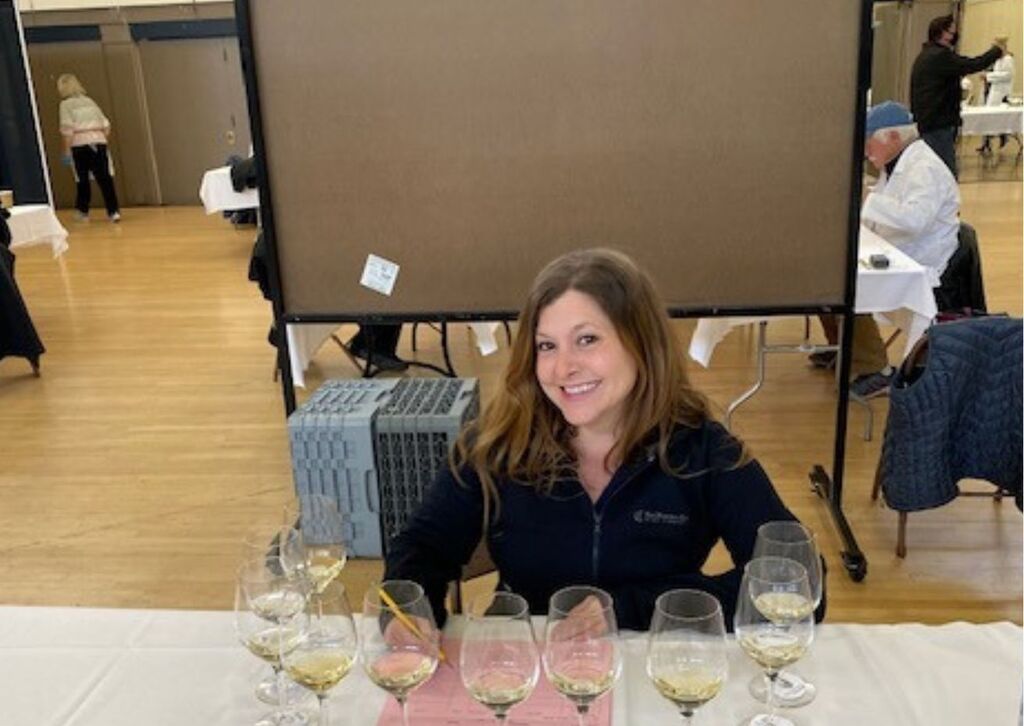
Judging at Wine Competition
Challenges That I Have Faced
I have encountered a lot of challenges or mishaps while traveling.
Everything from being told I couldn’t board a flight for a trip I’d planned for months because my passport expired less than 6 months from the date I was traveling to leaving my laptop (i.e. my entire life) in a taxi in Madrid and having to track down the taxi driver via my credit card receipt and pay him a hefty fee to get it back (still, I was SO lucky!) to have a long-stay apartment reservation cancelled on me at the last minute after I’d already arrived to locking my phone and keys inside an Airbnb apartment in a small village in Italy while I was out on a run (with the wrong set of keys) and having to get the fire department to help me get back in No joke.
They brought a battering ram, and I had to jump in front of it to get them not to break down the door and just use a ladder to enter through the second-story bedroom window instead.
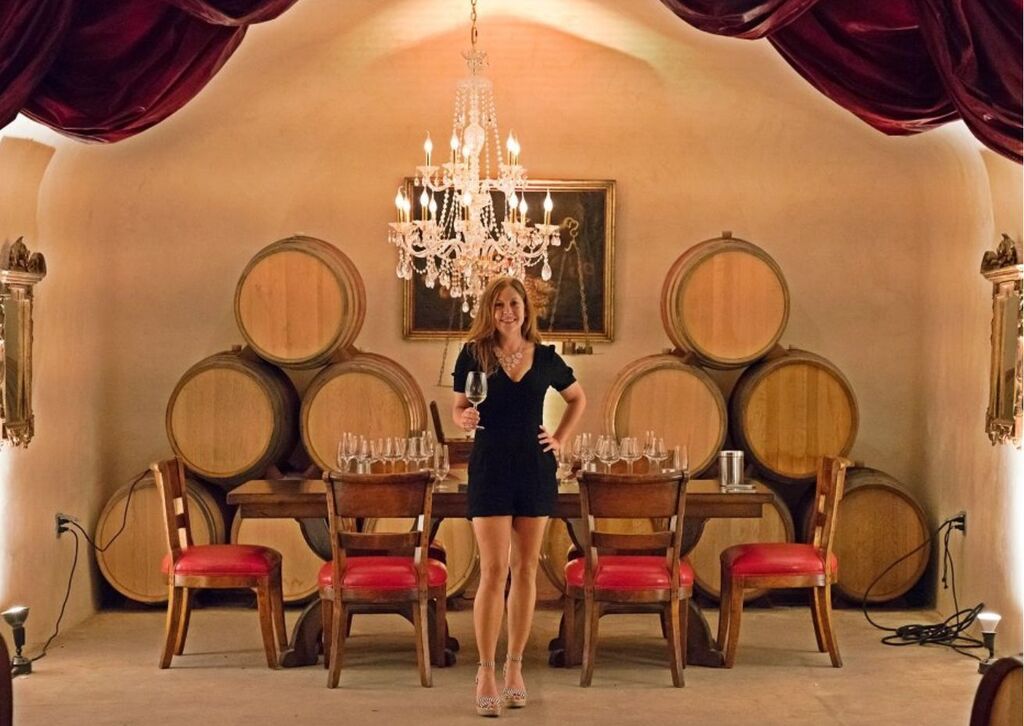
In Cellar at Buena Vista Winery Sonoma
However, I’ve rarely been in unsafe or dangerous situations over the past ten years because I naturally don’t engage in high-risk activities or do things that will put me in sketchy situations.
I am also strategic and practical, so I can usually think of a few potential solutions, and I have no problem approaching strangers for help (and I know how to do so in the right way thanks to having worked in customer service and hospitality for so many years when I was young!). Now, when I was in my early 20s... I definitely did some stuff that could have ended badly for me and luckily didn’t. But these days, I’m just not living the kind of lifestyle that puts me in many risky situations.
I’m always staying somewhere where I have my own private space. A door that locks, etc. I’m not staying in sketchy neighborhoods. I’m not going out late at night and getting really drunk with strangers or walking around a city drunk in the wee hours of the morning. I’m checking all of my documents carefully in advance of a trip and making sure to keep my phone, passport, etc. in secure locations.
A few things I always do while traveling now (after mishaps that taught me to do these things):
1. I do not ever walk around with my passport on me. I leave it in a secure location in my apartment.
2. I never go out carrying all of my credit cards, bank cards, or other possible methods of payment. I always leave a credit card and a bank card at my apartment so that if my bag gets lost or stolen, I still have a way to pay for things.
3. I never leave my apartment (while traveling) without grabbing my keys out of my purse and looking at them on the way out the door to make sure I’ve got them, they are the right keys, etc.
4. I scan the seat and floor of every taxi I travel in before shutting the door and letting the taxi drive away and make sure I have my phone and all my bags, etc. I also always pay with a credit card so that I have a record of which company it was, what cab number, etc.
5. I try to have a backup plan in case something goes wrong, such as if the owners of the apartment I’ve reserved cancel at the last minute (i.e. I try to know what the best, moderately affordable alternatives are and if there are none, I try to have a few other nearby locations on my list that I could go without upending my entire trip, plans, etc.).
6. I don’t ever book flights that arrive in the middle of the night or super early morning hours, as it’s harder to figure things out if something you’ve booked or planned on (a shuttle, your check-in time with a host, etc.) doesn’t work out.
7. I send my itineraries to my family so they know what country or city I’ll be in and when.
Things I Wish I Would Have Known When I First Started
While hindsight is always 20/20, and we can’t truly learn the most important lessons without living, and making mistakes first, I wish I’d known how many opportunities existed for young people that wanted to travel when I was in my early 20s (teaching English abroad, etc.). I would definitely have traveled earlier, if I’d realized I could have done so without a lot of money.
I also wish I would more fully conceptualized the sacrifices, costs, etc. (personally and professionally) that come with traveling for longer periods of time. Traveling costs a lot more than just what you spend on booking the trip, accommodation, etc. If you spend a few years abroad, and then come home you face having missed a lot of important moments in your friends and families’ lives. It becomes harder for you to connect with and relate to others at home, in very different situations. And often, the freedom you experience while traveling makes it difficult or impossible to return to living a ‘normal’ life, working a normal job/having a stable profession at home, etc. Traveling regularly, for long periods, over many years also makes it very difficult to be a part of a solid, permanent community (which humans really benefit from).
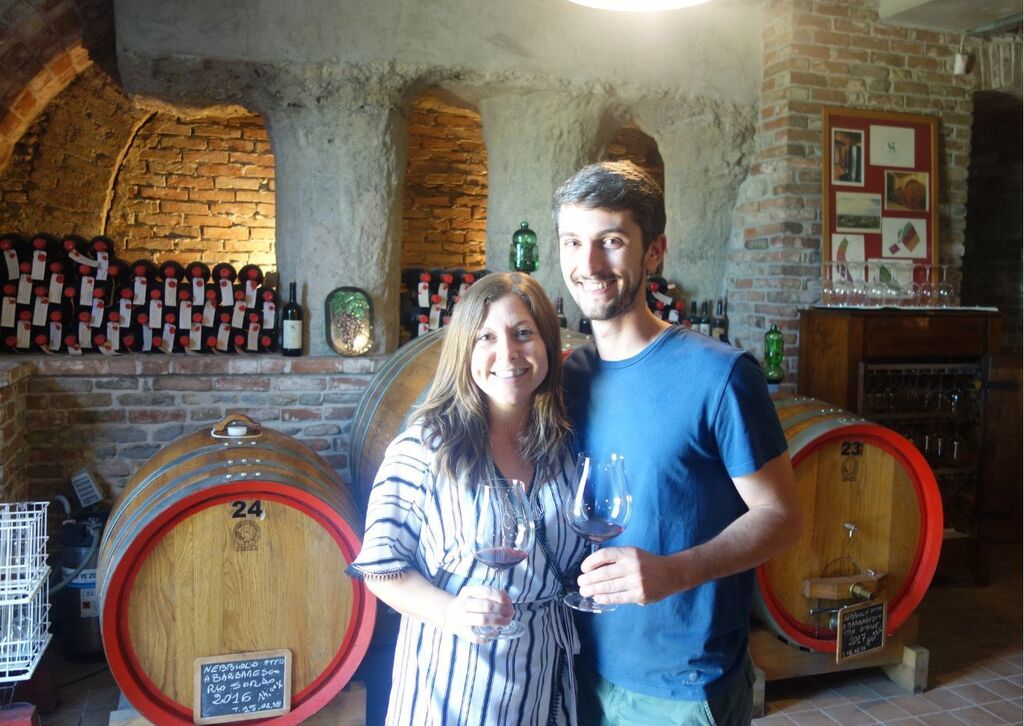
With Winemaker at Cascinadelle Rose Piemonte
Additionally, if you are traveling with money you’ve saved (versus earning a remote salary), it’s important to remember that you are both spending your savings as well as not earning an income and not putting any money into retirement or savings. So you are spending (or losing) more $ than just what you spend to live.
I would still have wanted to travel for long periods of time, even knowing all of the above. But I would probably have made some different decisions about how long I remained away from home at a time, and about the types of professional opportunities I pursued. I’d also have worked harder to maintain those important friendships and relationships at home (which are so easy to neglect when you are in a different timezone across the world).
When I travel now, I try to return to the same countries and regions over and over again to explore new areas I haven’t on previous trips at least 70% of the time. Then I occasionally throw a new country into the mix. This is because I get more meaning out of going back to the same countries and exploring different regions. I’m able to see friends I’ve met on previous trips, I’m learning more of the local language or dialect, and I’m continuing to learn more about the culture, food, etc. in different areas.
I want to have communities in my favorite places around the world, where I can go back time and time again and feel like they are second homes-even while discovering something new on every trip.
